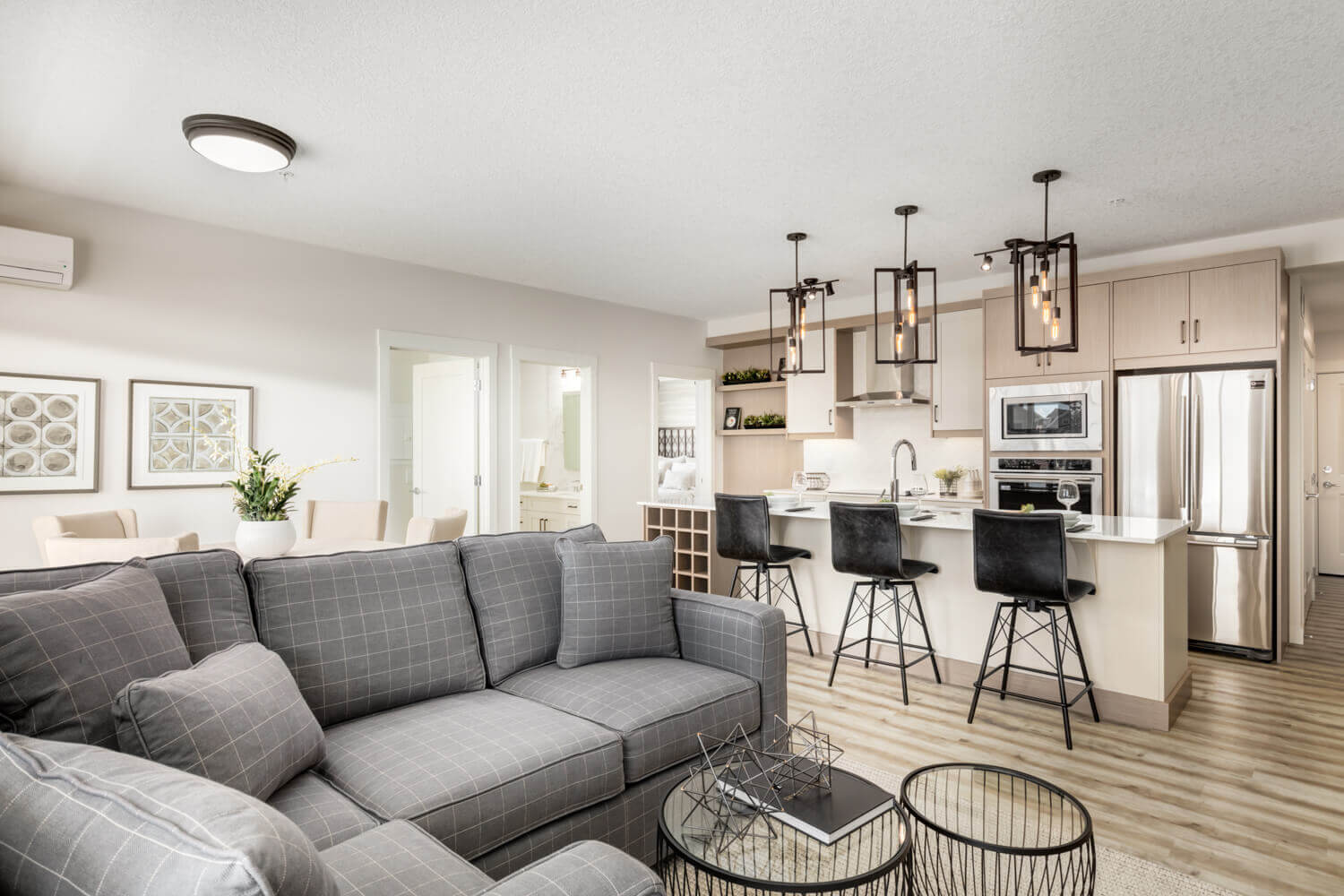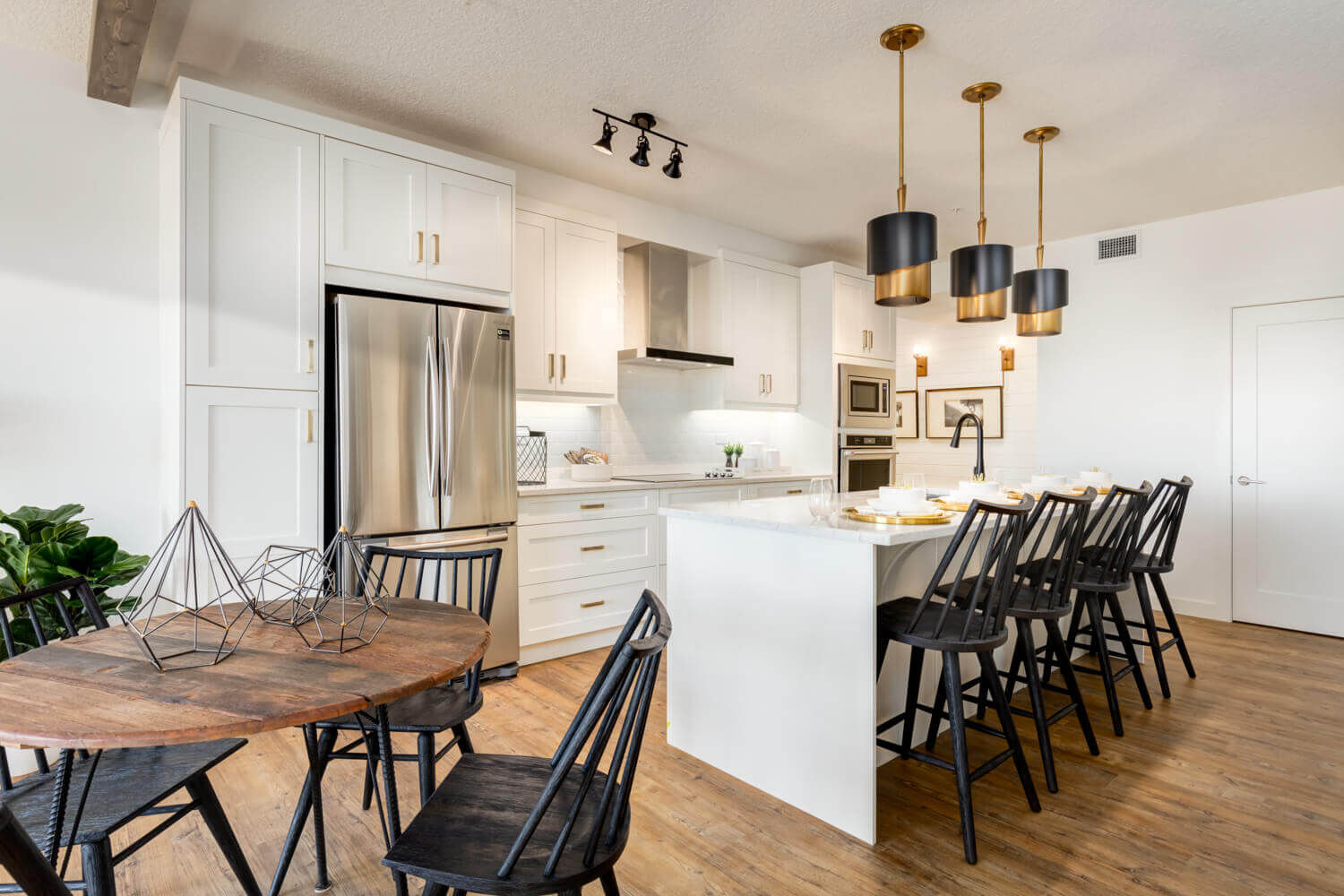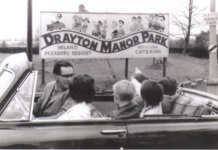Alberta’s thriving economy of the 1990s often referred to as the second oil boom, had wide-reaching economic implications for Calgary. As people migrated from other parts of Canada to the province’s largest city to take part, the housing market saw unprecedented expansion.
Tim Logel, President and Co-Founder of Cardel Lifestyles, a leading multi-family (condominium/townhome) builder seized the opportunity and launched his business in 1999. Since then, Cardel Lifestyles has housed more than 3000 people, which works out to nearly a billion dollars’ worth of construction.
Recently, Tim was joined by his sons Brayden and Kevin, and in 2017, Cardel Lifestyles rebranded itself as Logel Homes to symbolise the importance of family involvement going forward. Despite the recession that has defined Alberta’s economy over the last five years, Logel Homes has enjoyed sustained success, in part due to their remarkable customer satisfaction ratings.
As the company matures, so does the family that runs it, and their continued success in a city and industry infamous for economic extremes will depend on their approach to embracing technology, facing industry disruption and dealing with succession.
Tharawat Magazine had the opportunity to sit down with Brayden Logel to discuss his journey in the family business, what it’s like working for his father and the future of Logel Homes.
You and your brother have seen your father build the business up from the very beginning. Did you always know you wanted to join him?
I did. I began my journey as a labourer at 15 and when I was in high school, I worked as a sales associate. Later, when I was attending University, I was a construction site supervisor assistant during my summer vacations. Filling such diverse roles as I came up enabled me to get acquainted with the business and as soon as graduated, I started full time at Cardel Lifestyles, which is now Logel Homes. My first task was automating and updating our systems. From there, I moved into sales and marketing where currently I’m Vice-President and manage a sales team of about 20 people. Being in the home building and land development industry is exciting. I also really enjoy being in a business to consumer environment dealing with customers on a daily basis.
My brother, Kevin, left university to come back and work on the construction side of the business. Previously, he worked as a site supervisor assistant and now, he’s a site supervisor. He’s built close to 500 condos where he’s typically had to manage 42 trades and 10 consultants for each unit in the year and a half or so it takes for completion.
The business was a frequent family topic at our dinner table – in that way we were involved from the very beginning. I get a great deal of satisfaction out of construction. There’s something very compelling about building a tangible structure and providing people with a home.

When you first started, what was it like to see your dad in a different role and have him be your boss?
It wasn’t a difficult transition. I was lucky that he was willing to collaborate early on and I think the fact that I had a university education gave him the confidence to let me make a lot of mistakes, from which of course I learned. He’s been an excellent mentor. I never thought I’d have as much impact early on as I did and that’s given me the confidence to grow into my role.
My brother and I don’t own any of our family business, and I think this is crucial – our parents are the sole owners. From the very first day, we’ve been compensated in the same way as any other employee. That’s important, especially in the first five to ten years. You’re going to have a skewed relationship with other employees if you’re walking straight into ownership. I see a lot of that with our peers, and I think they’re less motivated as a result.
Do you feel like the fact that you are a family owned and operated business helps with the way customers view you?
I do, but I also recognise it can go both ways. Often, the developer partners that we’re buying land off of want to see continuity in our succession plan. They want to know there’s some long-term stability and having a family member involved instils confidence in that respect. The other side of the coin is that if somebody in the family business lacks passion or is only there because they feel familial obligation the business won’t be successful. I think we’re lucky in that we all get along well, but it doesn’t come without its challenges.
[ms-protect-content id=”4069,4129″]
Tell us a little bit about your strategy for the family business. How do you navigate the unpredictable nature of the industry you’re in?
We operate in an energy-based economy in Alberta where we have the world’s third-largest oil and gas reserves. At our peak, we were building 5000 condos a year. With the drop in oil prices and the regional recession that came with it, we’ve settled in at around 2200. Strategy has played a critical role in our organisation over the last five years. We meet once a year specifically to discuss strategy in depth and every six months to decide if we need to adjust course. Each executive member has certain goals and metrics they need to meet in order for us to adhere to the strategy we’ve set, and we’re continually keeping track. We’ve unquestionably outscored the competition, and part of that was by keeping our volume up. This enabled us to take advantage of the economies of scale – an integral part of sustaining the business.
What do you see in terms of future trends that could result in industry disruption?
Over the last 30 years, the process of building a multi-family construction hasn’t changed drastically. However, when it comes to energy efficiency and product quality, there is continuous innovation, and we strive to be at the forefront of these new developments. Nevertheless, we’ve found that millennials are much more interested in economy rather than quality and unfortunately, we’ve seen less of them in our sales centres as a result. It’s becoming more challenging for them to afford a home.
The most significant change over the last three years from our perspective is downsizers. These are people aged 55 to 70 years old who are selling their single-family home and moving into a condo as a way of liquidating some of their assets to fund their retirement. A decade ago, they only accounted for 10 or 15 per cent of our buyers. Now, that number is 60 per cent. The question then becomes, how do you cater to that market? They are a lot more particular and want customisation, which has recently been a focal point for us.

You and your brother will lead the family business into the future. Have you discussed how the business might change with regards to expansion?
My father, my brother and I discuss this weekly. We’re always looking to improve and in today’s business environment, if you’re not open to change and innovation, you’re going to get left behind. We’re not averse to taking risks and trying new things, whether it’s in our product or on the operations side of the business. Companies that don’t have a change mentality are going to struggle going forward and we’ve seen that with our competition.
As you look to the future then, what would you like to see the company doing in the next 5 to 10 years?
It might not fit into the timeframe you’ve just suggested, but we’re looking at internationalising. One goal specifically, is building 500 to 700 home units south of the border. Moving into another market is inherently risky, however, the current housing market in Canada, at least in terms of Calgary, is saturated. As such, we’re paying a lot of attention to some American cities, and that’s where I would like to see us becoming established in the next decade.
[/ms-protect-content]














